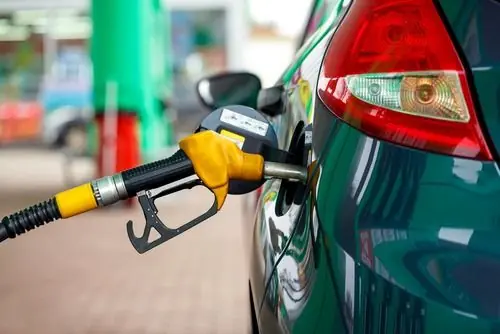Choosing the Right Fuel: A Guide for Consumers in Nigeria
In Nigeria, where the demand for fuel is high due to both industrial activities and daily transportation needs, choosing the right type of fuel is crucial for efficiency, cost-effectiveness, and environmental considerations. Whether you’re a business owner managing a fleet of vehicles, an industrial operator, or an individual car owner, understanding the different fuel options available can help you make an informed decision. This guide aims to provide Nigerian consumers with insights into choosing the right fuel for their needs.

Understanding Fuel Types
- Premium Motor Spirit (PMS)
- Commonly Known As: Petrol
- Uses: Widely used in vehicles, generators, and small machinery.
- Benefits: Petrol engines are generally quieter, provide better acceleration, and are more suitable for urban commuting.
- Considerations: Petrol can be more expensive than diesel and has higher emissions, contributing to pollution.
- Automotive Gas Oil (AGO)
- Commonly Known As: Diesel
- Uses: Ideal for heavy-duty vehicles, trucks, buses, and industrial machinery.
- Benefits: Diesel engines are more fuel-efficient, have a longer lifespan, and produce less CO2 per kilometer compared to petrol.
- Considerations: Diesel engines can be noisier and maintenance can be more costly due to their complex nature.
- Liquefied Petroleum Gas (LPG)
- Uses: Used for cooking, heating, and in some cases, as a fuel for vehicles.
- Benefits: LPG is cleaner, producing fewer pollutants and greenhouse gases. It is also cost-effective for cooking and heating.
- Considerations: LPG requires specialized storage and handling. Converting vehicles to LPG can be expensive initially.
Factors to Consider When Choosing Fuel
- Vehicle and Equipment Requirements
- Understand the manufacturer’s recommendations for your vehicle or equipment. Using the wrong type of fuel can lead to inefficiencies and potential damage.
- Cost Implications
- Analyze both the short-term and long-term costs. While petrol might be cheaper upfront, diesel engines might offer better fuel efficiency and lower running costs over time.
- Availability
- Ensure that the fuel type you choose is readily available in your area. This is particularly important in remote regions where fuel supplies might be limited.
- Environmental Impact
- Consider the environmental impact of your fuel choice. Diesel and LPG generally produce fewer emissions than petrol, making them more eco-friendly options.
- Performance Needs
- Evaluate your performance needs. If you require high power and torque for heavy-duty tasks, diesel might be the better choice. For smooth and quiet operation, petrol could be more suitable.
Tips for Fuel Efficiency
- Regular Maintenance
- Keep your vehicle or machinery well-maintained. Regular servicing ensures optimal performance and fuel efficiency.
- Driving Habits
- Adopt fuel-efficient driving habits such as gentle acceleration, maintaining steady speeds, and reducing idling time.
- Quality Fuel
- Purchase fuel from reputable suppliers to avoid contamination and ensure the best performance.
Conclusion
Choosing the right fuel in Nigeria requires careful consideration of various factors including cost, availability, performance needs, and environmental impact. By understanding the differences between PMS, AGO, and LPG, and evaluating your specific requirements, you can make an informed decision that benefits both your wallet and the environment.




